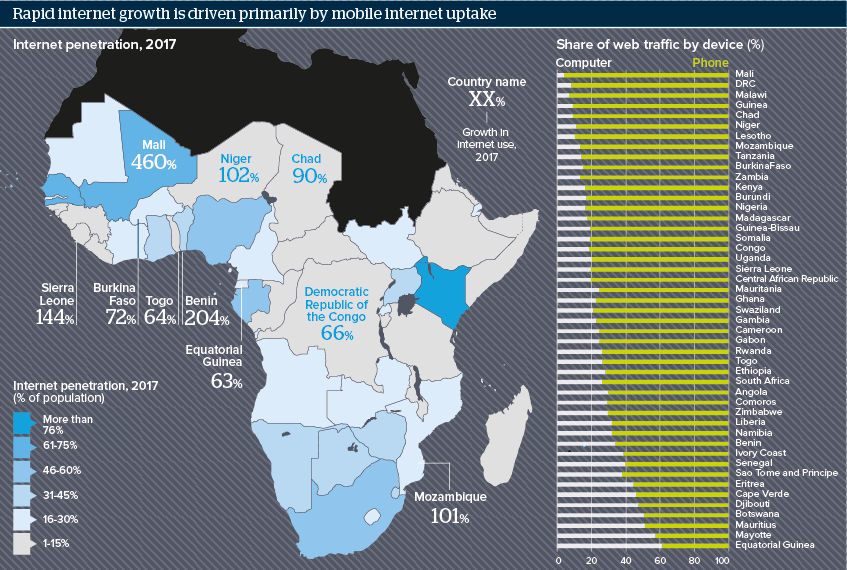Infrastructure will shape African internet trends
Internet use is expanding rapidly but infrastructure constraints will drive Africa along different paths to global peers
Source: We Are Social, Hootsuite, Oxford Analytica
Outlook
Internet usage across Africa expanded by 20% last year, the fastest rate of any world region. New undersea cables delivering high-speed data have also seen bandwidth more than double since 2015, improving connection speeds and driving down costs.
However, despite rapid growth, overall internet penetration levels (34%) remain the world’s lowest, centred largely on more developed economies, urban centres and open societies. Onshore infrastructure constraints keep usage costs high and rural penetration low.
Underdeveloped infrastructure also means a dependence on mobile internet access far above global averages, and below average data usage. While mobile technologies may therefore have huge utility, African markets may resist global trends towards high-data graphics-rich content.
Impacts
- The huge success of mobile money systems may increase receptivity to internet-based platforms suited to local contexts.
- Countries like Kenya, Nigeria and South Africa that have invested in skills and infrastructure will dominate tech venture capital growth.
- Africa’s relatively underdeveloped internet sphere will be highly exposed to cyber-security risks.
- Governments may seek new ways to exert control over social media as political dissent moves to the virtual realm.
See also
- Nollywood to grow at expense of Nigeria startups - Oct 13, 2021
- African telecoms markets will undergo transformation - Jun 15, 2018
- Consolidation to shape East Africa mobile telecoms - May 24, 2016
- More graphic analysis
